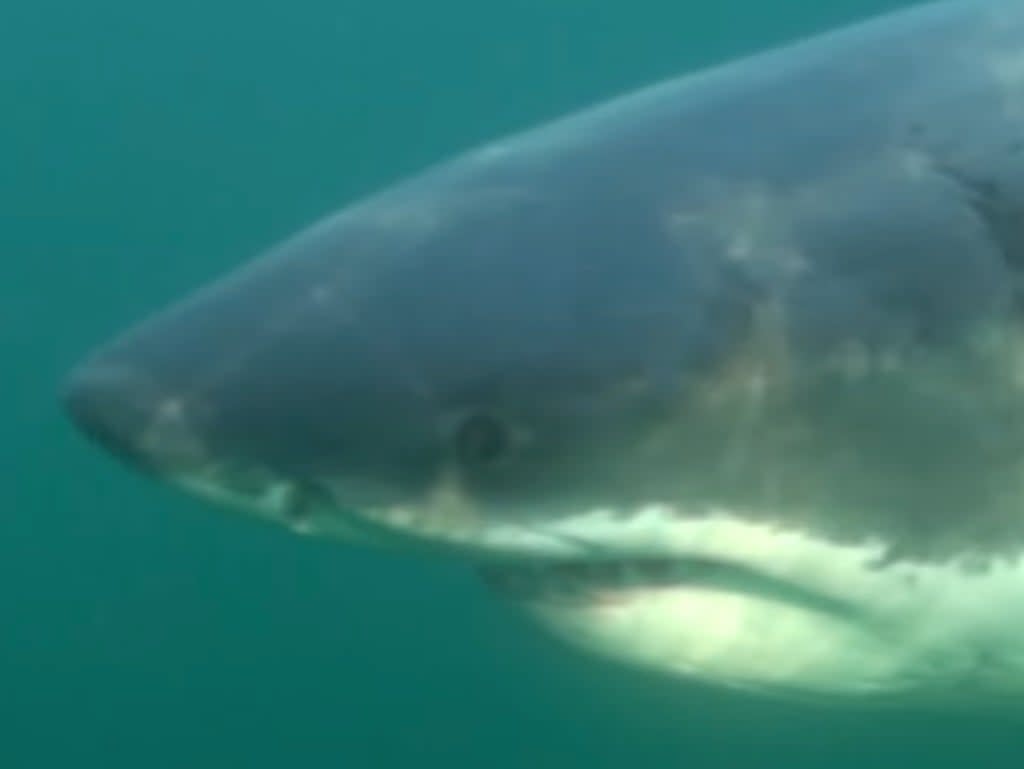Massive great white shark dubbed ‘Ironbound’ spotted swimming off New Jersey shore

A great white shark weighing approximately 998lbs has been recorded swimming along the New Jersey shore by a marine wildlife non-profit, OCEARCH.
The group, who track shark migration, traced the shark known as “Ironbound” to New Jersey at the end of April, CNN reported on Monday.
A ping at 10pm on 28 April located Ironbound not far from New Jersey’s coastline, which Bob Hueter, chief scientist at OCEARCH, said was a typical migratory pattern for sharks in the Atlantic.
“He’s gone back and forth from where we found him in Nova Scotia and the Florida Keys several times,” said Mr Hueter to CNN. “They’re moving north to the very rich feeding grounds off of Canada and the northeastern US”.
The shark was tagged by OCEARCH in October 2019 – allowing researchers at the non-profit to track Ironbound’s journeys up and down the East Coast of the United States.
The marine predator was named Ironbound after the West Ironbound Island near to where OCEARCH caught the 12ft four inch shark nearly three years ago in Canada, and is among several sharks whose movements are monitored by the group.
OCEARCH’s tracker shows Ironbound swimming as far north as the Bay of Fundy in Canada off the coast of Nova Scotia, and as far south as the Straits of Florida off the Gulf of Mexico, since he was tagged.
As Mr Hueter expalained to CNN: “Mating season is over, we think, and Ironbound is on his way north to get into some good feeding ground and bulk up again for the next year”.
The scientist added that although great white shark numbers had fallen over the past four decades, they were now on the rise again in the Atlantic.
Overfishing is often cited as the number one threat to the shark population, with the animals both being caught by fisherman and subject to limited food supplies.
“Sharks have been around for about 400 million years,” Mr Hueter was reported as saying. “They in many cases occupy what’s called the apex predator position, in marine food webs. Just like on land, that is an important role in terms of keeping the lower parts of the food web healthy and balanced.”
The Word Wildlife Fund (WWF) classes the great white shark as vulnerable.

